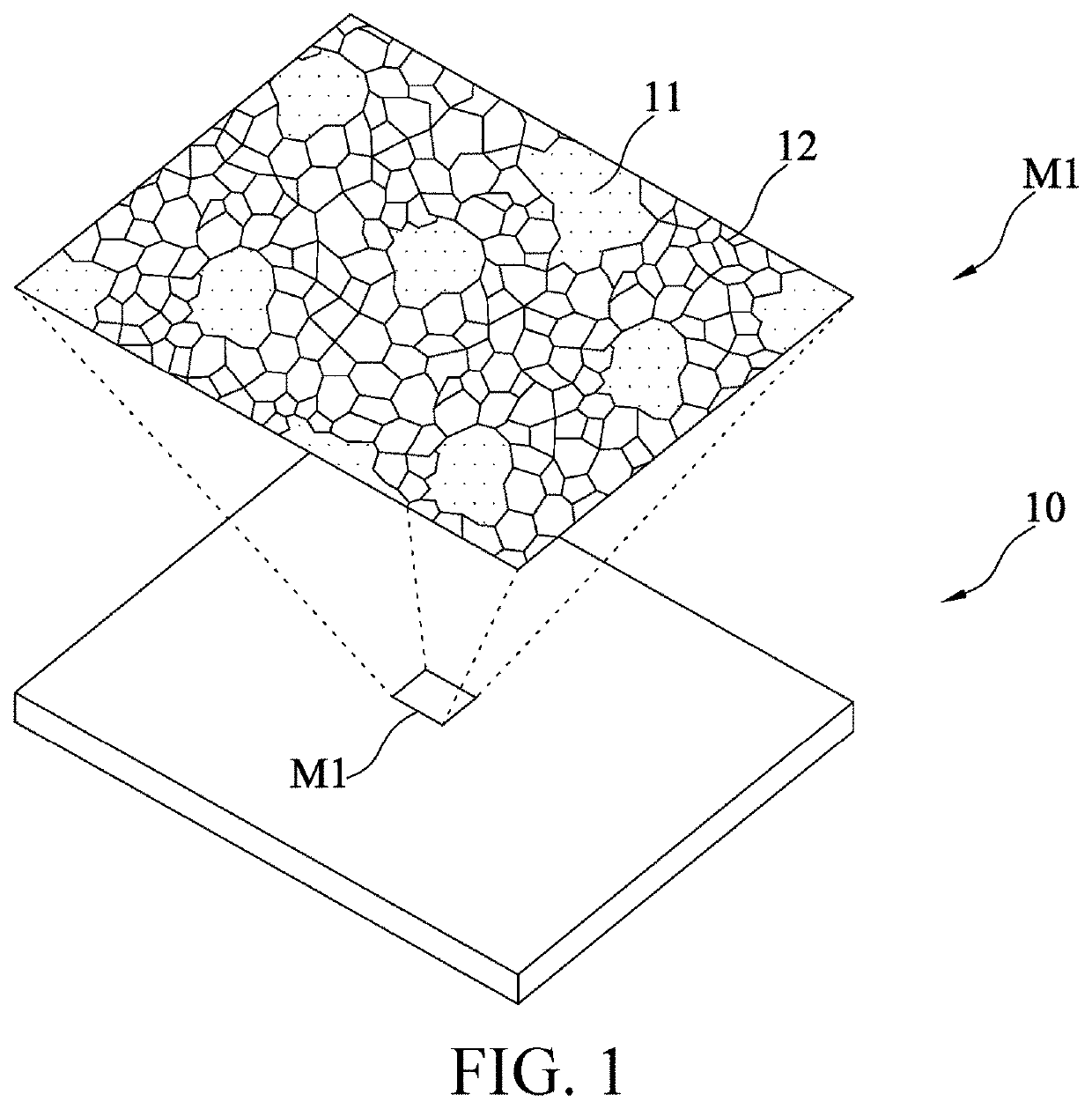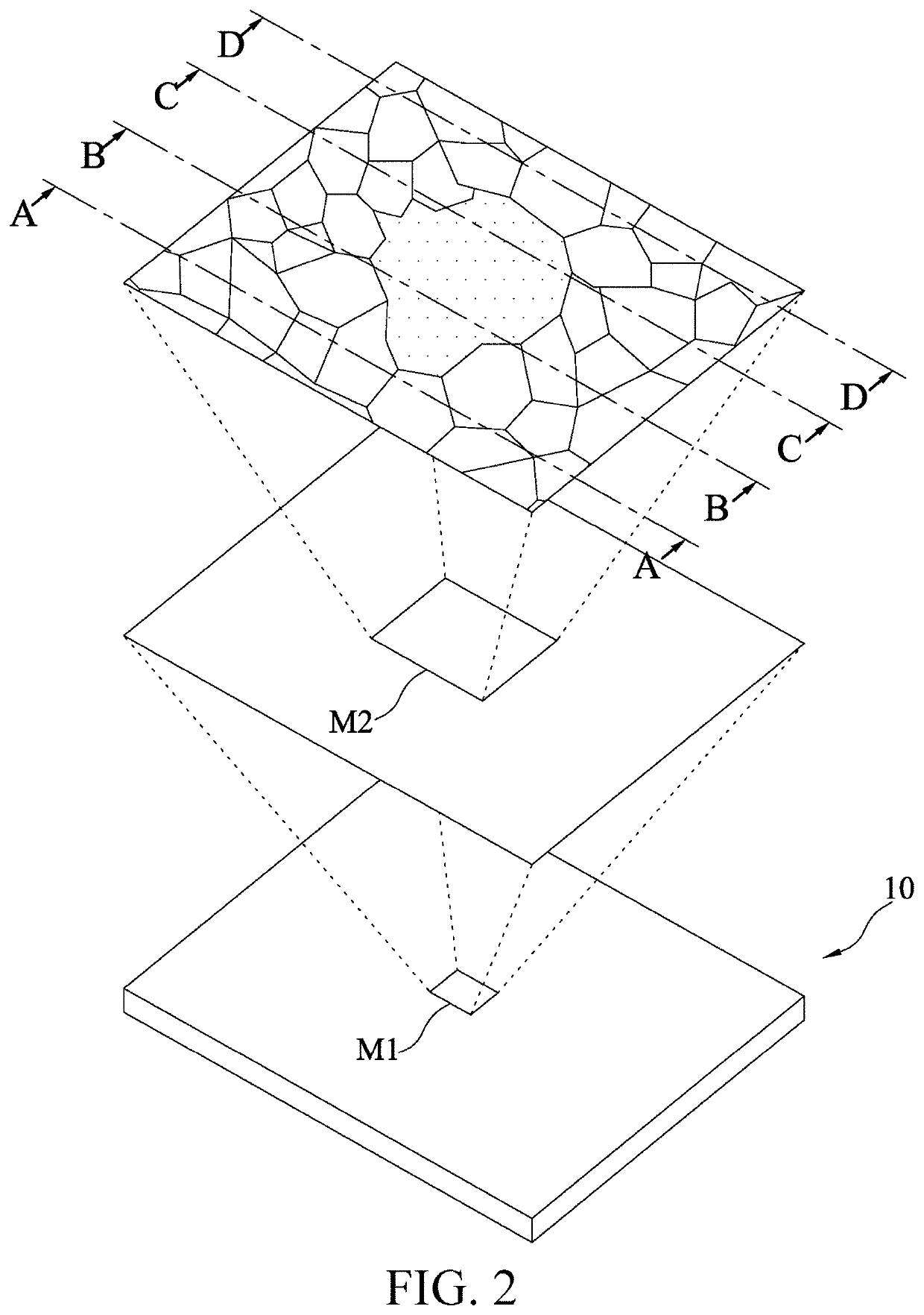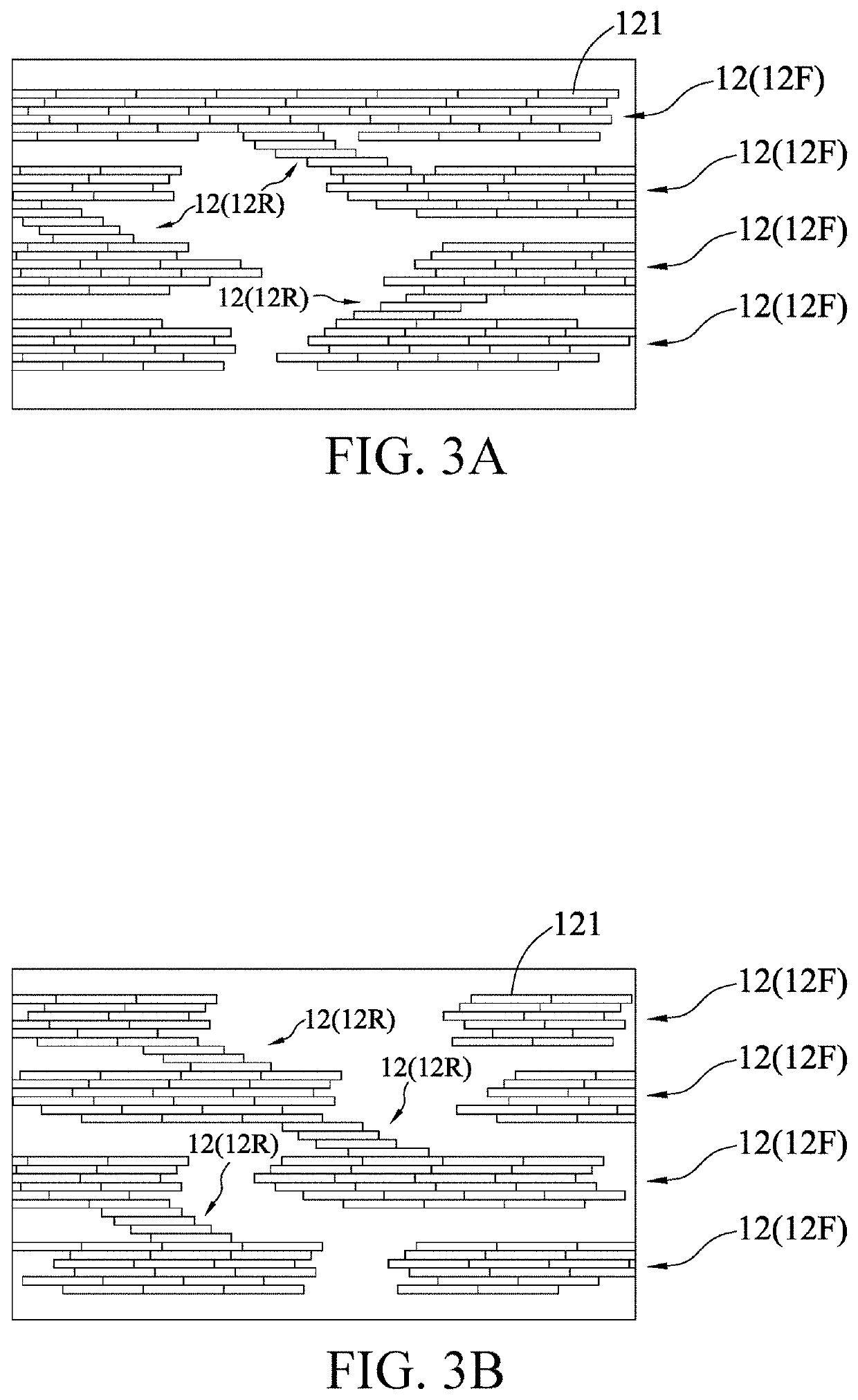Flexible electrode and fabrication method therefor
- Summary
- Abstract
- Description
- Claims
- Application Information
AI Technical Summary
Benefits of technology
Problems solved by technology
Method used
Image
Examples
first embodiment
[0037]FIG. 1 and FIG. 2 are respectively a schematic diagram (1) and a schematic diagram (2) of a microstructure of a flexible electrode according to the present invention, which illustrate an exemplary flexible electrode 10 and a surface interior. The flexible electrode 10 in this embodiment includes an organic soft matrix (an organic-phase domains) 11 and a plurality of silicate lamellar blocks (an inorganic-phase domains) 12. The organic soft matrix (the organic-phase domains) 11 is mainly composed of a conductive polymer (for example, PEDOT:PSS, PANI, or PPY) and a binder. The binder (for example, PVA, PEO, PAMM, PVAC, or PVP) used in this embodiment is water-soluble and ionically conductive. FIG. 3A to FIG. 3D show interiors of cross-sections of different positions (lines AA, BB, CC, and DD marked in FIG. 2) on an exemplary flexible electrode 10. Each of the silicate lamellar blocks 12 is composed of a plurality of stacked silicate lamellae 121. A direction (shown in FIG. 3A to...
second embodiment
[0040]As shown in FIG. 4, in a second embodiment, first capacitively active materials 122 are adsorbed between at least a part of the silicate lamellae 121. The first capacitively active materials 122 are selected from transition metal ions (such as iron, cobalt, nickel, and the like, or a mixture thereof), especially from nitrate, sulfate, acetate or chloride of a transition metal.
third embodiment
[0041]As shown in FIG. 5, in a third embodiment, the organic soft matrix (the organic phase domain) 11 further includes second capacitively active materials 112. The second capacitively active materials 112 are selected from transition metal nanoparticles and transition metal oxide particles, such as manganese oxides, cobalt oxides, vanadium oxides, or the like.
PUM
| Property | Measurement | Unit |
|---|---|---|
| Molar density | aaaaa | aaaaa |
| Particle size | aaaaa | aaaaa |
| Particle size | aaaaa | aaaaa |
Abstract
Description
Claims
Application Information
 Login to View More
Login to View More - R&D
- Intellectual Property
- Life Sciences
- Materials
- Tech Scout
- Unparalleled Data Quality
- Higher Quality Content
- 60% Fewer Hallucinations
Browse by: Latest US Patents, China's latest patents, Technical Efficacy Thesaurus, Application Domain, Technology Topic, Popular Technical Reports.
© 2025 PatSnap. All rights reserved.Legal|Privacy policy|Modern Slavery Act Transparency Statement|Sitemap|About US| Contact US: help@patsnap.com



